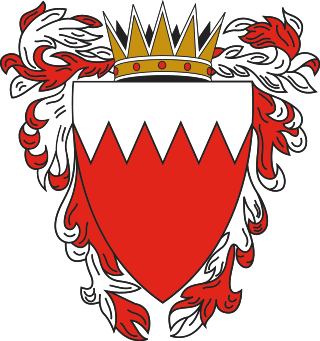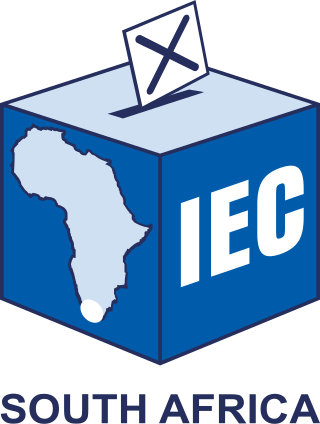Related Research Articles

The politics of Armenia take place in the framework of the parliamentary representative democratic republic of Armenia,whereby the president of Armenia is the head of state and the prime minister of Armenia the head of government,and of a multi-party system. Executive power is exercised by the president and the Government. Legislative power is vested in both the Government and Parliament.
Politics in Georgia involve a parliamentary representative democratic republic with a multi-party system. The President of Georgia is the ceremonial head of state and the Prime Minister of Georgia is the head of government. The Prime Minister and the Government wield executive power. Legislative power is vested in both the Government and the unicameral Parliament of Georgia.

The United Kingdom is a constitutional monarchy which,by legislation and convention,operates as a unitary parliamentary democracy. A hereditary monarch,currently King Charles III,serves as head of state while the Prime Minister of the United Kingdom,currently Sir Keir Starmer since 2024,serves as the head of the elected government.

The Westminster system,or Westminster model,is a type of parliamentary government that incorporates a series of procedures for operating a legislature,first developed in England. Key aspects of the system include an executive branch made up of members of the legislature which is responsible to the legislature;the presence of parliamentary opposition parties;and a ceremonial head of state who is separate from the head of government. The term derives from the Palace of Westminster,which has been the seat of the Westminster Parliament in England and later the United Kingdom since the 13th century. The Westminster system is often contrasted with the presidential system that originated in the United States,or with the semi-presidential system,based on the government of France.

Politics of Bahrain has since 2002 taken place in a framework of a constitutional monarchy where the government is appointed by the King of Bahrain,King Hamad bin Isa Al Khalifa. The head of the government since 2020 is Crown Prince Salman bin Hamad Al Khalifa,who became Prime Minister following the death of Khalifa bin Salman Al Khalifa,and who also serves as Deputy Commander of the Bahrain Defence Force. The parliament is a bicameral legislature,with the Council of Representatives elected by universal suffrage,and the Consultative Council appointed directly by the king.

The Parliament of Canada is the federal legislature of Canada,seated at Parliament Hill in Ottawa,and is composed of three parts:the King,the Senate,and the House of Commons. By constitutional convention,the House of Commons is dominant,with the Senate rarely opposing its will. The Senate reviews legislation from a less partisan standpoint and may initiate certain bills. The monarch or his representative,normally the governor general,provides royal assent to make bills into law. According to Section 16 of the Canadian Charter of Rights and Freedoms,the official languages of the parliament are English and French.

The Legislative Council,or upper house,is one of the two chambers of the Parliament of South Australia. Its central purpose is to act as a house of review for legislation passed through the lower house,the House of Assembly. It sits in Parliament House in the state capital,Adelaide.

In the United Kingdom,the Electoral Commission is the national election commission,created in 2001 as a result of the Political Parties,Elections and Referendums Act 2000. It is an independent agency that regulates party and election finance and sets standards for how elections should be run.

The Senate is one of the two chambers of the bicameral Federal Parliament of Belgium,the other being the Chamber of Representatives. It is considered to be the "upper house" of the Federal Parliament.

The political structure of the European Union (EU) is similar to a confederation,where many policy areas are federalised into common institutions capable of making law;the competences to control foreign policy,defence policy,or the majority of direct taxation policies are mostly reserved for the twenty-seven state governments. These areas are primarily under the control of the EU's member states although a certain amount of structured co-operation and coordination takes place in these areas. For the EU to take substantial actions in these areas,all Member States must give their consent. Union laws that override State laws are more numerous than in historical confederations;however,the EU is legally restricted from making law outside its remit or where it is no more appropriate to do so at a state or local level (subsidiarity) when acting outside its exclusive competences. The principle of subsidiarity does not apply to areas of exclusive competence.
Under the Iraqi constitution of 1925,Iraq was a constitutional monarchy,with a bicameral legislature consisting of an elected House of Representatives and an appointed Senate. The lower house was elected every four years by manhood suffrage. The first Parliament met in 1925. Ten general elections were held before the overthrow of the monarchy in 1958.

Elections in Jordan are for the lower house,known as the House of Representatives,of the bicameral parliament of Jordan,as well as for local elections. They take place within a political system where the King has extensive legislative and executive powers,retaining ultimate political control. The Prime Minister is selected by the King,the PM is then free to choose his own Cabinet. The parliament has quotas:three seats for Circassians and Chechens,nine for Christians and fifteen for women. The electoral system favours rural tribes and those of East Bank origin over urban areas that are primarily inhabited by those of Palestinian descent.

The Independent High Electoral Commission is Iraq's electoral commission. The electoral commission is headed by a nine-member board. Seven of those members are voting and must be Iraqi citizens. The IHEC is currently headed by Judge Jalil Adnan Khalaf.

Sheikh Tamim bin Hamad bin Khalifa Al Thani is Emir of Qatar,reigning since 2013.

The Electoral Commission of South Africa is South Africa's election management body,an independent organisation established under chapter nine of the Constitution. It conducts elections to the National Assembly,provincial legislatures and municipal councils.
Parliamentary elections were held in Afghanistan on Saturday 20 October 2018 to elect members of the House of the People. 3,296,643 people voted,42% of registered voters. They had originally been scheduled for 15 October 2016,but were initially postponed to 7 July 2018,and then again to 20 October. Much of the prelude to the elections focused on the debate over reforming the country's electoral laws. The current system is one of single non-transferable vote. Kandahar's election was held on October 27. Polls were also delayed in Ghazni,due to an intensifying Taliban insurgency in the province,and as of September 2020 still have not been held. The new Parliament was inaugurated on 26 April 2019.

General elections were held in Jordan on 20 September 2016 to elect the 18th House of Representatives. The elections were announced after parliament was dissolved by King Abdullah II on 29 May 2016,with the King appointing Hani Mulki as interim Prime Minister following the resignation of Abdullah Ensour.

On 15 August 2017,Jordan held local elections for three levels of government:mayoralties,municipal and local councils,and governorate councils.

Parliamentary elections were held in Iraq on 12 May 2018. The elections decided the 329 members of the Council of Representatives,the country's unicameral legislature,who in turn will elect the Iraqi president and prime minister. The Iraqi parliament ordered a manual recount of the results on 6 June 2018. On 10 June 2018,a storage site in Baghdad housing roughly half of the ballots from the May parliamentary election caught fire.

Samar Haj Hassan,is a Jordanian politician and activist for women’s rights,a former member of the Jordanian Senate and commissioner in the Independent Election Commission (Jordan). She currently serves as the Chairperson of the Board of Trustees of the National Centre for Human Rights (Jordan) and was on the Royal Committee to Modernise the Political System,appointed as the President of the Women’s Empowerment sub-committee.
References
- 1 2 "Kalaldeh: IEC built remarkable expertise over 6 years". Guide To Jordanian Politics Life.
- 1 2 "Kalaldeh calls for more cooperation between legislative, executive powers". Jordan Times. March 7, 2015.
- ↑ "Elections bill in line with political reform — Kalaldeh". Jordan Times. October 25, 2015.
- ↑ "Parties have role in creating political awareness — Kalaldeh". Ammon News.
- 1 2 "Kalaldeh briefs US official on reform drive". Jordan Times. June 21, 2014.
- ↑ "Kalaldeh, US envoy discuss progress in reform process". Jordan Times. September 16, 2015.
- ↑ "Jordanian minister praises bilateral ties with Qatar". Gulf Times. November 2, 2015.
- ↑ "Gov't using dialogue, openness to achieve reform — Kalaldeh". Jordan Times. February 17, 2014.